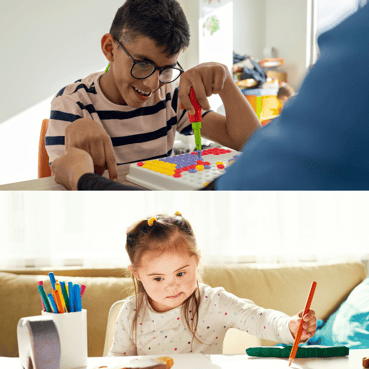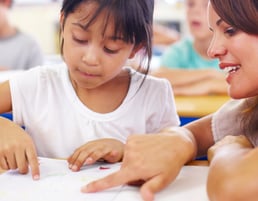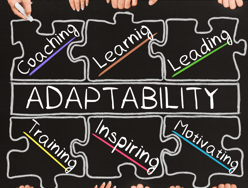Intellectual Disabilities
Intellectual Disabilities (ID) refer to significant limitations in intellectual functioning and adaptive behavior, which manifest during the developmental period and impact individuals' everyday functioning. These limitations can affect reasoning, problem-solving, academic learning, and practical life skills. Individuals with ID may have difficulty with conceptual, social, and practical skills, leading to challenges in areas such as communication, self-care, social interactions, and independent living.


Intellectual Development
JDMR Home School recognizes the diverse needs of students with intellectual disability(ID) and is committed to nurturing and providing a supportive learning environment that promotes positive behavior, fosters academic growth, and enhances your child's overall well-being.
How JDMR Home School Helps Students with ID








Individualized Educational Plans: JDMR Home School develops individualized educational plans (IEPs) tailored to the specific strengths, needs, and goals of students with ID. These plans outline personalized goals and strategies to address academic, social, and life skills development.
Adaptive Curriculum and Materials: JDMR Home School provides adaptive curriculum and materials designed to accommodate the diverse learning needs of students with ID. This may include simplified instructional materials, visual aids, hands-on learning activities, and interactive resources to facilitate understanding and engagement.
Structured and Predictable Environment
we offer a structured and predictable learning environment that promotes consistency and routine, which can benefit students with ID who thrive on predictability and clear expectations. Consistent routines and visual schedules help students feel secure and supported in their learning environment.
Positive Behavior Support:
JDMR Home School implements positive behavior support strategies to encourage appropriate behavior and social skills development in students with ID. This may involve reinforcing positive behaviors and teaching alternative coping strategies.


Made by ❤️ © JDMR ISCHOOL PVT. LTD.
